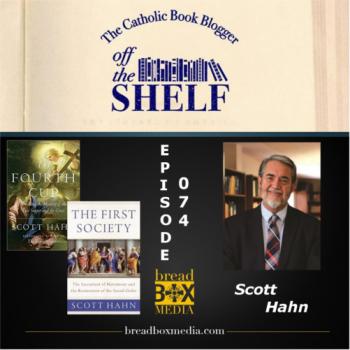 There are so many great books out there that I cannot possibly keep up with all of them. From time to time I bring in a guest reviewer to share their thoughts on what they have read. This time around I welcome my friend author Maura Zagrans. You may recall my review of her book Camerado: I Give You My Hand. The book details the story of Father David Link and his work in the prison system. You can find that review here. Maura brings to us today a timely look at the book The Global War on Christians by John Allen, Jr.
There are so many great books out there that I cannot possibly keep up with all of them. From time to time I bring in a guest reviewer to share their thoughts on what they have read. This time around I welcome my friend author Maura Zagrans. You may recall my review of her book Camerado: I Give You My Hand. The book details the story of Father David Link and his work in the prison system. You can find that review here. Maura brings to us today a timely look at the book The Global War on Christians by John Allen, Jr.
_____________________________________________________________________________________________________
 In the wake of the horrifying beheading of 21 Egyptian Christians, the one book that ought to be on every Christian’s nightstand is The Global War on Christians: Dispatches from the Front Lines of Anti-Christian Persecution
In the wake of the horrifying beheading of 21 Egyptian Christians, the one book that ought to be on every Christian’s nightstand is The Global War on Christians: Dispatches from the Front Lines of Anti-Christian Persecution
(Image 2013) by John L. Allen Jr.
Not exactly light reading, getting through this book requires a deliberate suspension of compassion fatigue. And yet, it is essential that people of good conscience persevere right through to the final pages. I would never have read Global War if my friend Pete Socks had not asked me to. Pete was right, and I am grateful that I listened to him.
Drawing from many different sources, the author cites statistics that will shock most Christians right out of their complacency. Placing this problem within the context of world history, Allen writes, “more Christians were killed because of their faith in the twentieth century than in all previous centuries combined.” So many Christians around the world are targeted for reasons of faith, as many as eleven lose their lives every hour. Of all the religious persecutions taking place today, fully 80 percent are directed at Christians, which means that more than 100 million Christians around the world are in dire peril at any given moment in time.
If those numbers don’t grab your attention, then the book’s vivid illustrations of what these statistics look like in terms of human suffering certainly will. Moving around the globe country-by-country, Allen profiles Christians who suffered brutal persecution, many dying the ghastly death of martyrs. Nearly ten pages are given over to a discussion of the situation in Egypt, where Christians have long been considered second-class citizens and where conversion from Islam is treated as a crime. Six pages are allocated to Syria, where fetid politics prevented the citizens of Homs from celebrating Easter 2012 for the first time in centuries. In Iraq, which bears the awful distinction of being “the leading symbol of the war on Christianity,” an estimated 1.4 million Christians in 1991 have been decimated to a mere 450-200 thousand living there today. Allen observes, “The Christian presence in Iraq stretches all the way back to the era of the Apostles, which means that a church that took two millennia to construct has essentially been gutted in the arc of just two decades.” This tragic disconnect from the origins of our faith is something to be mourned by Christians everywhere.
Indisputably, the information documented by the author is indispensable. The human face that he puts on this world wide suffering is also important. Even so, the mightiest essence of the book lies in what is done with this documentation of anti-Christian persecution. Anyone who has been involved in forensics, which is the art of formal debate, will recognize that the statistics and crime reporting provide a sturdy foundation for the muscular middle section of the book. Here, Allen offers rebuttals that debunk five myths concerning the global war on Christians. My favorite chapter is the chilling “The Myth That No One Saw It Coming” because it ruthlessly shoots down all justifications for global surprise when atrocities such as the beheading of 21 young men occur.
Allen is well aware that his primary audience, American Christians, has a predilection for distraction from this bloody war by engaging in arguments over peculiarly Western issues such as gay marriage and abortion. Conceding that wrestling with such concerns has merit, the author adds a thought-provoking postscript: “When leading estimates indicate that some one hundred million Christians around the world face the threat of interrogation, arrest, torture, and death on the basis of their faith, such insularity becomes much harder to defend.”
The great power of The Global War on Christians lies in its ability to show that everyone is culpable. No longer can any of us hide behind feigned surprise at the image of a breathtakingly long line of orange jumpsuits kneeling on the sand as swords being brandished over their heads glisten in the sun. Christians everywhere are culpable because we are reluctant either to notice, or admit, that this war is being waged. We have closed our ears to the cries of the oppressed. We have not done everything possible to pursue peace. It is true that despotic regimes are filled with morally hollow monsters. But in the aftermath of the horror, we must consider the possibility that we who deny this crisis are hollow Christians.
Allen’s writing is at its absolute zenith in the 5½ pages devoted to “Theology From Below.” Also enjoyable is the relaxed voice with which Allen explains “What’s To Be Done.”
Thinking about what’s to be done, I would suggest that one excellent first step in halting incidents of unthinkable brutality such as are occurring right now, all over the world, on our watch, is to read The Global War on Christians.
Step number two is to seek moments of quiet reflection so that we can bend an ear to the Holy Spirit and listen for further instructions, as the world is cacophonous, and the Word sometimes only a whisper.
_____________________________________________________________________________________________________











